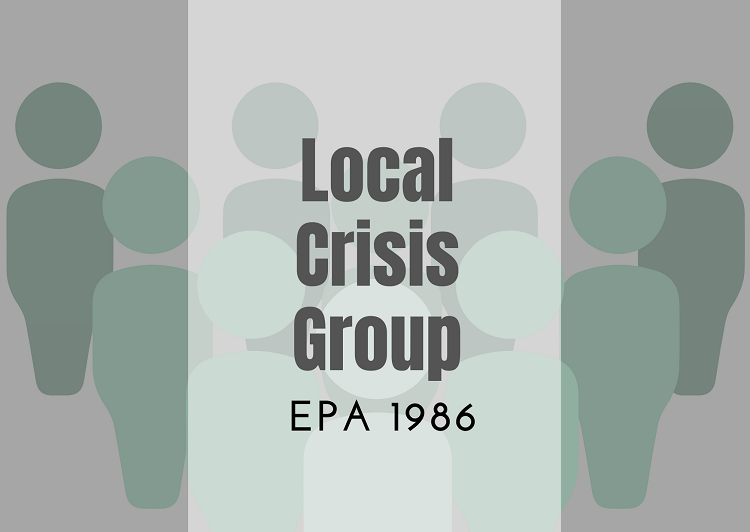The demand comes a day after a major fire broke out at a chemical unit in the Taloja MIDC area.
Panvel / Navi Mumbai: The recent fire incident at Taloja MIDC sent many into panic, pressing on the urgent need for better crisis management. The Technologists’ Welfare Association, Panvel, has written to the PCMC Commissioner, the Chairperson of the Local Crisis Group, Panvel, requesting immediate conducting of Local Crisis Group meetings, in accordance with the Environment Protection Act (EPA) 1986, and Chemical Accident Rules, 1996.
The association has pressed on the urgent need to conduct “Local Crisis Group” meetings, given the fact that the Taloja MIDC industrial area is a potential disaster zone for the residents of Taloja, Kharghar, Kamothe, Kalamboli and Panvel, and that a well aware local community will be adept at safeguarding their lives in the event of a major incident.
SV Ranade, President, Technologists’ Welfare Association, shares, “The fire incident was not a very big one as many would say but was enough to scare the local residents. You can never say how big such small incidents can turn into, in industrial areas. The local residents are already struggling with the pollution arising out of the Taloja MIDC area, and any untoward incident in future, like a gas leak, can possibly turn into a major disaster, given the unpreparedness of the residents as well as the factory workers.”
“It is most essential to keep local residents informed about preparedness of offsite emergency agencies, instill required confidence in them and extend any needed cooperation in disaster management. Having said that, local residents, as well as the factory owners, management and workers, need to meet on a regular basis and discuss existing issues while chalking down feasible plans to tackle any such incidents. In the present scenario, the only reaction during such a crisis, if it happens again on a much larger scale, would be an exodus full of panic and that would do more harm than good,” he adds.
“It is most essential to keep local residents informed about preparedness of offsite emergency agencies, instill required confidence in them and extend any needed cooperation in disaster management.”
S.V. Ranade – President, Technologists’ Welfare Association
Telling us more about the Local Crisis Group of the Panvel region, Ranade shares further.
“We had written to the CM’s office, and in response, they instructed the District Collector, Raigad, and the Department of Environment, Maharashtra, to take further action. As the Commissioner of PCMC, happens to be the chairperson of the Panvel Local Crisis Group, we have written to him, requesting immediate commencement of local crisis group meetings on a regular basis as the EPA Act, 1986, demands. We have been assured of a response this week.”
Local activists and concerned individuals press on the need for awareness among the local residents.
Jaspal Singh Naol, Journalist and Social Activist, shares, “It is about time the administration took thing seriously, like starting local action group meetings in the Taloja MIDC area. Except for a few people, there are hardly any who are even aware of any such things. If a disaster strikes, there will be nothing but chaos owing to the unpreparedness of the people in the Panvel region.”
Advocate Shelly Pandya, Kharghar, shares, “We need to press on the need to conduct local group meetings in Panvel and also actively participate, given the opportunity. There is zero awareness and preparedness among local residents in to tackle or contribute in the event of any such disasters.”
What is the Environment Protection Act (EPA) 1986?
The Environment Protection Act, 1986 Act (of the Parliament of India), came into effect in the wake of the Bhopal gas Tragedy or Bhopal Disaster, that killed and maimed thousands. It was a disaster that could have been stopped from happening had there been proper planning and handling of the factory. The act, which came into force on 19th November, 1986, and last amended in 1991, serves the purpose of implementing the decisions of the United Nations Conference on the Human Environment. It calls for the improvement of the human environment and the prevention of hazards to human beings, other living creatures, plants and property. It is an “umbrella” legislation providing a framework for central government to coordinate with and regulate activities and functions of all central and state authorities within the country, under previous laws, such as the Water Act and the Air Act.
In a nutshell, The Environment (Protection) Act, 1986 authorizes the central government to protect and improve the quality of the environmental, control and reduce pollution arising out of all known sources, and prohibit or restrict the setting and /or operation of any industrial facility on environmental grounds. It presses on the provision for protection and improvement of the environment on a whole. The act empowers the Central Government to establish district and local authorities, or groups, for the prevention of environmental pollution and tackle specific environmental problems, peculiar to different regions.
The functions of the Local Crisis Group are:
- To be an active body in the industrial pocket to deal with chemical accidents and coordinate efforts in planning, preparedness and mitigation of a chemical accident.
- To prepare local emergency plans for the industrial pocket
- To ensure dovetailing of the local emergency plan with the district off-site emergency plan
- To train personnel involved in chemical accident management
- To educate the population most likely to be affected in case of a chemical accident about the remedies and existing preparedness in the area
- To conduct at least one full-scale mock-drill of a chemical accident at a site every six months and forward a report to the District Crisis Group
- To respond to all public inquiries on the subject
All these and more can form the basis of the functioning of a Local Crisis Group depending on the types of industries and issues at hand.
Last Updated on February 14, 2021 by Staff Reporter



